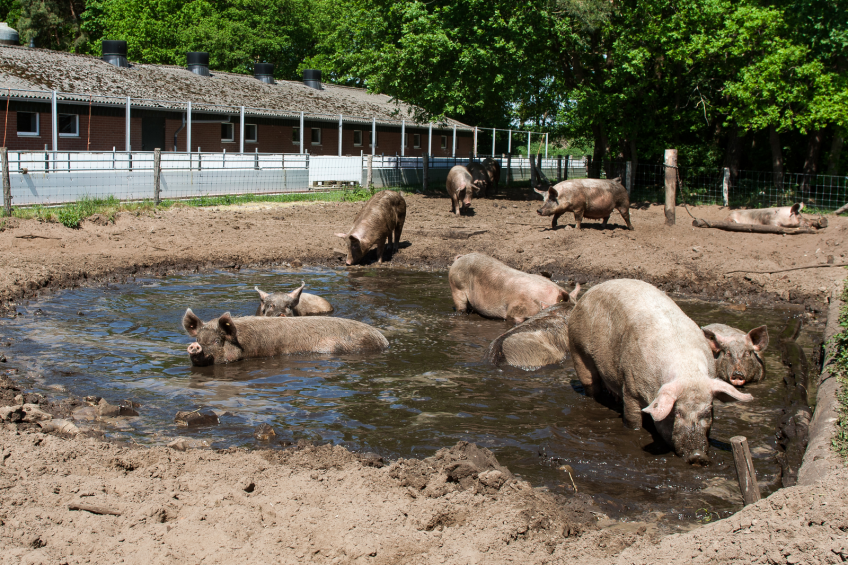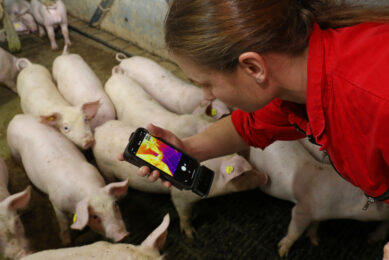Pigs in the media in the US and UK

Pig production and meat consumption were debated in several leading media in the USA as well as the UK this August. The issues have raised questions and comments on both sides of the Atlantic, noted Pig Progress editor Vincent ter Beek. Just ignoring all critical voices is not the solution.
EXPERT
I have to warn you, reader. In this article I’m going to touch on a couple of subjects that may not go down well. I’d like to talk about a topic I’ve written about before: that pork will become a luxury product. Not tomorrow, or even next month, but in the long term. Two recent media publications made me think about it again.
Media controversy in Chicago Tribune
Early August, I was intrigued to read about a media controversy stirred up by the Chicago Tribune. The newspaper spent multiple months making a long read about pig production in Illinois – called ‘The price of pork: Cheap meat comes at a high cost in Illinois’.
For the article, the authors spoke to many people in and around the pig industry, so with pig producers and their neighbours, lawmakers and experts. Their final outcome was a long article that was critical in its tone of voice towards the Illinois pig industry. The US National Pork Board responded that very same day saying that the “Tribune failed its readers by not accurately reflecting” 4 key points, you can read this in a column written by Cheryl Day in National Hog Farmer.
Quality journalism
This left me somewhat confused. Not only have I been working in the pig industry for over a decade now, I also happen to know my bit of journalism. The Chicago Tribune is not just your random newspaper. In terms of quality journalism, it’s generally been regarded as one of the world’s leading titles. That doesn’t mean the newspaper can’t make any mistakes or print biased views, but I’m sure whatever is produced wasn’t the result of a whim.
The picture that emerges from reading both the article as well as the National Pork Board’s retort is one of a huge perception gap between the public opinion in cities on one hand and the reality on-farm. What I find particularly interesting in the Pork Checkoff’s reaction is that the Chicago Tribune apparently had failed to pick up that farmers ‘have dedicated their life to providing for the best in health, well-being and safety of their animals and the safety of the food they produce’.
Pig well-being – what is it?
Now things like ‘health’, ‘well-being’ and ‘safety’ are words that can be defined in different ways. I am convinced that many pig producers genuinely feel their pigs are taken care of well when the animals don’t suffer from diseases, are kept in comfortable temperatures, have food to eat, have permanent access to water and do not get attacked by penmates. In addition, gestation stalls are being phased out and so are antibiotics – and some producers even provide toys and straw.
Exactly how subjective the concept of ‘animal well-being’ is, becomes clear when you ask this to random people who do not live on farms and happen to see a regular pig farm on the fly. Ask these people what they saw and they will likely talk about many animals in pens, of them having to live in their own manure or having scratch marks on their backs, of them being kept on barren, concrete floors, surrounded by iron bars. And having to live permanently in an environment of strong odour and flies buzzing around. No doubt, they would define ‘well-being’ as pigs being able to go outside, lie in the sun and roll in the mud – the romantic idea one would have of organic pig farming.
Also read:
What the other media write about agri
Discussion in British media
Now let’s jump across the Atlantic to a second media discussion which I’d like to touch on. It started by a personal column by George Monbiot, a well-known British environmentalist, which was published in the UK quality newspaper The Guardian. I am sure some may feel discomfort reading the author’s conclusions: he points to veganism being the way ahead to live sustainably.
He talks about his personal choices and how he reached these. Even when you don’t agree, it’s worth pondering over his words for a few moments. His contribution led to a response by Dr Jimmy Smith, director general of the International Livestock Research Institute, adding some balance to the debate by stating that ‘demonising livestock is a misguided simple response’.
Still, what kept echoing in my mind for a few days was Monbiot’s message that I had never before seen written so clearly: that if you’d like to do something good for animals, you had better not eaten meat instead of opting for organic production. I quote: “Free-range farming is kinder to livestock but crueller to the rest of the living world.”
Pork as luxury product
Back to pork and the luxury product. On the basis of these 2 media debates, a picture emerges that from 2 sides there’s long-term pressure on pork (and meat) production. On one hand, societal demands will create ever-growing pressure – right or not – to continuously adjust pig production in the favour of more attention for the environment and animal welfare.
On the other, if we would have to provide the same amount of food we do today by farming organically, the ecological footprint of farming would be a lot higher. In other words, if all farms would farm organically as from this very day, the output would be a lot less – nowhere near enough to feed the world population – let alone the world in 2050.
The role of pork in the future
When combining these, I cannot help concluding that the role of pigs and pork will change. What we need for the future is much more food proteins; constructing a lot more new, large, conventional farms, however, meets opposition in an increasing amount of places.
Hence my conclusion: in some areas sooner than in others, pork and other sources of meat will gradually transform from being a staple product to becoming a luxury product. It’s just everyone’s duty in the pig industry to think about what that means for their own role in the long term.











